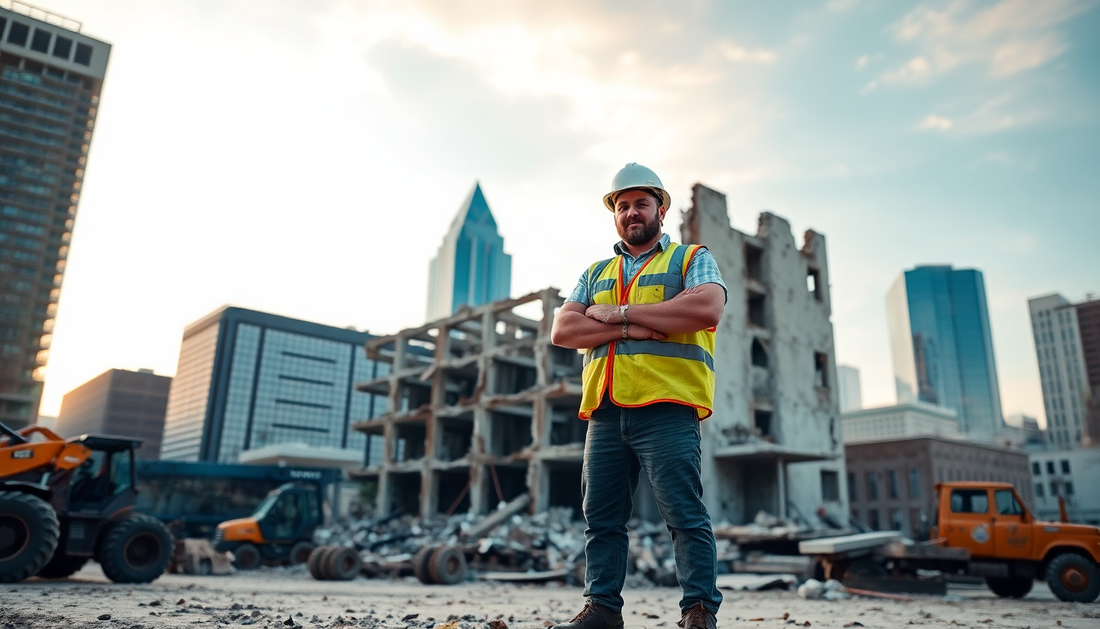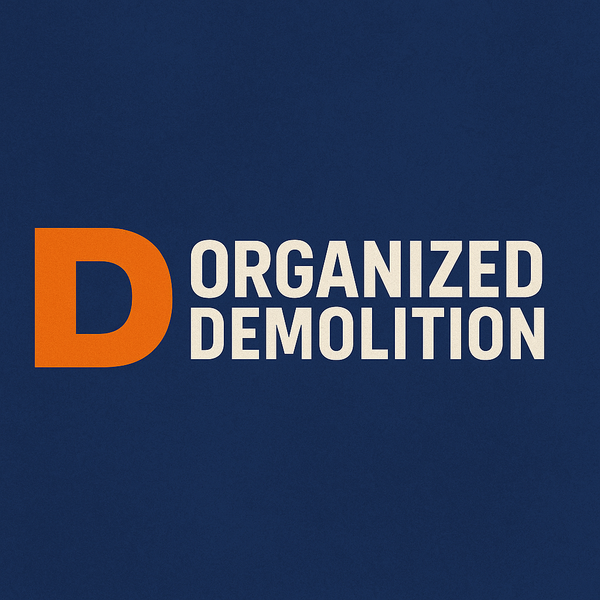
Raleigh, NC Sustainable Demolition Practices: Reducing Environmental Impact in Construction Projects
Share
In the ever-evolving landscape of the construction industry, the importance of sustainable practices has become increasingly paramount. As a leading demolition contractor in Raleigh, North Carolina, Organized Demolition is committed to pioneering innovative approaches that minimize the environmental footprint of our projects. In this comprehensive blog post, we will delve into the world of sustainable demolition, exploring the strategies and techniques that are transforming the way we approach construction and deconstruction in the Raleigh area.
The Importance of Sustainable Demolition
The demolition process has long been associated with significant environmental challenges, from the generation of waste to the release of harmful pollutants. However, as the global community becomes more conscious of the need to protect our planet, the construction industry has been compelled to rethink its practices. Sustainable demolition has emerged as a critical component in the quest for a more eco-friendly future.
At Organized Demolition, we recognize that our work has a direct impact on the environment. By embracing sustainable demolition practices, we can not only reduce waste and emissions but also contribute to the preservation of natural resources and the well-being of the communities we serve.
The Environmental Impact of Demolition
Demolition projects, if not managed properly, can have a significant impact on the environment. The primary concerns include:
-
Waste Generation: Traditional demolition methods often result in the production of large quantities of waste, including concrete, metal, wood, and other materials. This waste can end up in landfills, contributing to the growing problem of waste management.
-
Greenhouse Gas Emissions: The use of heavy machinery, transportation, and the disposal of waste can all contribute to the release of greenhouse gases, exacerbating climate change.
-
Hazardous Material Exposure: Older buildings may contain hazardous materials, such as asbestos or lead, which can pose a threat to the health of workers and the surrounding community if not properly handled.
-
Resource Depletion: The demolition of buildings can lead to the loss of valuable resources, such as timber and metals, which could be reused or recycled.
Embracing Sustainable Demolition Practices in Raleigh, NC
Organized Demolition is committed to addressing these environmental challenges by implementing a comprehensive approach to sustainable demolition. Our strategies are designed to minimize waste, reduce emissions, and promote the reuse and recycling of materials.
1. Waste Reduction and Management
One of the cornerstones of our sustainable demolition practices is the implementation of robust waste reduction and management strategies. We work closely with our clients to develop tailored plans that maximize the diversion of waste from landfills.
Material Sorting and Recycling
Our team is trained to carefully sort and segregate materials during the demolition process, ensuring that recyclable items, such as metals, concrete, and wood, are diverted from the waste stream. We partner with local recycling facilities to ensure that these materials are processed and reintroduced into the supply chain, reducing the need for virgin resources.
Deconstruction Techniques
In addition to traditional demolition methods, we also employ deconstruction techniques that prioritize the preservation and reuse of building materials. By carefully dismantling structures, we can salvage valuable components, such as doors, windows, and fixtures, which can then be repurposed or sold to secondary markets.
Waste-to-Energy Conversion
For materials that cannot be recycled or reused, we explore alternative disposal methods, such as waste-to-energy conversion. By partnering with local waste-to-energy facilities, we can divert these materials from landfills and convert them into a source of renewable energy, further reducing our environmental impact.
2. Emissions Reduction
Reducing greenhouse gas emissions is a critical aspect of our sustainable demolition practices. We have implemented a range of strategies to minimize the carbon footprint of our operations.
Equipment Optimization
Our fleet of demolition equipment is regularly maintained and upgraded to ensure optimal fuel efficiency and reduced emissions. We also explore the use of alternative fuel sources, such as biodiesel or electric-powered machinery, where feasible.
Transportation Optimization
We carefully plan our transportation routes and schedules to minimize the distance traveled and the number of vehicles required for each project. This not only reduces fuel consumption but also lowers the overall emissions generated during the transportation of materials and equipment.
Dust and Particulate Control
Demolition activities can generate significant amounts of dust and particulate matter, which can have adverse effects on air quality and human health. We employ advanced dust suppression techniques, such as water misting and the use of specialized equipment, to minimize the release of these pollutants into the environment.
3. Material Reuse and Recycling
At Organized Demolition, we are committed to the principles of the circular economy, where materials are reused and recycled to the greatest extent possible. By diverting materials from landfills, we can contribute to the conservation of natural resources and the reduction of waste.
Concrete and Asphalt Recycling
Concrete and asphalt are two of the most common materials encountered in demolition projects. We have developed specialized processes to crush and recycle these materials, which can then be used as aggregate in new construction projects or as a base for roads and other infrastructure.
Metal Reclamation
Metals, such as steel and aluminum, are highly valuable resources that can be easily recycled. Our team carefully extracts and sorts these materials, ensuring that they are processed and reintroduced into the supply chain, reducing the need for virgin metal production.
Wood Repurposing
Wooden components from demolished structures can often be repurposed or upcycled into new products, such as furniture, flooring, or even building materials. We work with local artisans and craftspeople to identify opportunities for the reuse of these materials, minimizing waste and promoting sustainable practices.
Collaborating with the Raleigh Community
At Organized Demolition, we recognize that sustainable demolition practices are not just about our own operations but also about collaborating with the broader Raleigh community. We actively engage with local authorities, environmental organizations, and industry partners to share best practices, advocate for policy changes, and foster a culture of sustainability within the construction industry.
Educating Clients and the Public
We believe that education is a crucial component of driving sustainable change. We work closely with our clients to help them understand the environmental impact of demolition and the benefits of adopting sustainable practices. We also participate in community outreach events and workshops to raise awareness among the general public about the importance of sustainable demolition.
Advocating for Policy Changes
Organized Demolition actively engages with local policymakers and regulatory bodies to advocate for the implementation of policies and regulations that support sustainable demolition practices. We believe that by working with the Raleigh government and other stakeholders, we can create a more favorable environment for the adoption of eco-friendly demolition methods.
Conclusion
As a leading demolition contractor in Raleigh, North Carolina, Organized Demolition is committed to driving the transformation towards sustainable demolition practices. By implementing innovative strategies that prioritize waste reduction, emissions control, and material reuse, we are setting a new standard for the construction industry and contributing to the preservation of our local environment.
Through our collaborative efforts with the Raleigh community, we aim to inspire and empower others to join us in this journey towards a more sustainable future. Together, we can create a built environment that not only meets the needs of the present but also safeguards the well-being of generations to come.
